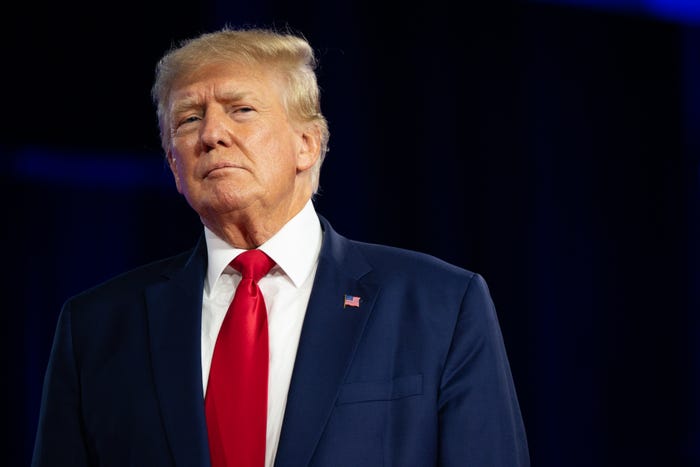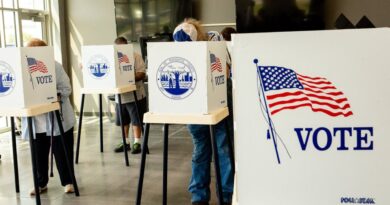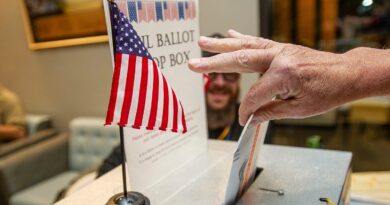Firm paid by Trump campaign to prove election claims came up empty: WaPo

- The Trump campaign commissioned a firm to probe the 2020 election, but researchers came up empty, per The WaPo.
- Roughly a dozen people at the Berkeley Research Group were part of a team analyzing Trump’s claims.
- The research didn’t deliver what the Trump campaign sought and the findings were kept undisclosed.
A research firm hired by former President Donald Trump’s 2020 campaign to validate the former president’s claims of election fraud instead was unable to find evidence to support his theories, nor were the findings released to the public, according to The Washington Post.
The Berkeley Research Group was commissioned by the Trump campaign to analyze the voting data from six states to probe whether voter fraud or any irregularities had occurred during the 2020 election. Areas of focus for the probe were voter machine malfunctions, allegations that a mass of deceased individuals had voted in the election, and other evidence that could point to a Trump victory, per the report.
The Trump campaign envisioned using evidence from the report to bolster the then-president’s claims in the public arena and in court.
But individuals with knowledge of the situation told The Post that the results didn’t line up with what the Trump team had sought, and the research group’s findings were subsequently not disclosed to the public.
Roughly a dozen people at the Berkeley Research Group were part of a team analyzing the Trump campaign’s claims, per the report, which included econometricians, who utilize mathematics and statistics to model outcomes.
The work was completed after the November 2020 election, during the remaining weeks of that year, and right before the January 6, 2021, riot at the United States Capitol.
Since his loss to President Joe Biden, Trump has continued to insist that he was the true victor in the contest, despite the lack of evidence of any widespread fraud.
Biden won the key swing states of Arizona, Georgia, Michigan, Nevada, Pennsylvania, and Wisconsin — which were part of the Berkeley analysis — but all were long deemed to be highly competitive during that presidential cycle.
“They looked at everything: change of addresses, illegal immigrants, ballot harvesting, people voting twice, machines being tampered with, ballots that were sent to vacant addresses that were returned and voted,” said an individual familiar with the research who spoke with The Post.
“Literally anything you could think of. Voter turnout anomalies, date of birth anomalies, whether dead people voted. If there was anything under the sun that could be thought of, they looked at it,” the individual added.
According to four individuals who spoke with the newspaper, the findings were not what Trump officials were expecting from the analysis.
The researchers felt that there were some voting anomalies in several of the states and pointed to particular laws which may have been sidestepped, but they didn’t feel as though it was enough to change the outcome of the election.
An individual with knowledge of the findings told The Post that the Trump team pushed for at least a dozen hypotheses to be tested.
“None of these were significant enough,” the individual told the newspaper. “Just like any election, there are always errors, omissions and irregularities. It was nowhere close enough to what they wanted to prove, and it actually went in both directions.”
A spokesperson for Berkeley Research Group told The Post: “Our experts provide independent and objective factual analysis and as a matter of firm policy, we do not comment on client engagements or on privileged and confidential matters.”
After the November 2022 midterms, which saw many pro-Trump election deniers stumble at the ballot box, the former president proceeded to launch his 2024 campaign.
Trump is so far the only declared major Republican in the contest. But it won’t be for long, as former South Carolina Gov. Nikki Haley is expected to join the GOP field on Wednesday at a campaign launch in Charleston.


